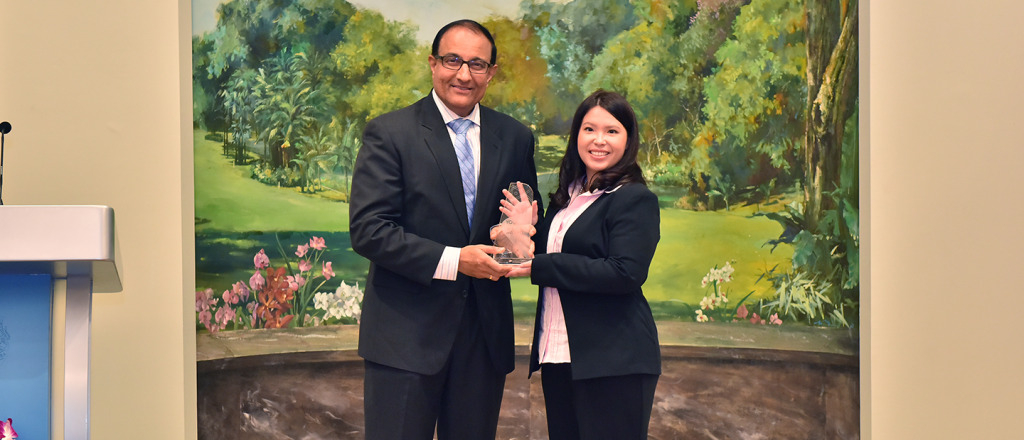Yale-NUS professor is fourth woman to receive Young Scientist Award

On 4 November 2014, eleven research scientists and engineers were recognised for their great contributions to research and development in Singapore. Yale-NUS Assistant Professor of Science, Dr Melissa Jane Fullwood, is the fourth woman to be awarded the Young Scientist Award 2014, since it was established in 1997.
“Many important scientific discoveries have come from women, so I am very happy that several women scientists have been recognised this year at the President’s Science and Technology Awards 2014, and to have been honoured by the Young Scientists Award,” said Dr Fullwood. “Science needs women!”
Awarded by the Singapore National Academy of Science (SNAS) and supported by A*STAR, the Young Scientist Award (YSA) was presented at the President’s Science and Technology Awards Ceremony. The YSA recognises young researchers under the age of 36 who exhibit great potential to be world-class researchers in their fields.
“Several eminent researchers in Singapore have received the YSA in the past, and I am grateful to join their ranks,” shared Dr Fullwood, who was also the recipient of a prestigious fellowship from Singapore’s National Research Foundation (NRF) in 2013, which was awarded with SGD$3 million of research funding.
Apart from her role at Yale-NUS, Dr Fullwood holds joint appointments as a Junior Principal Investigator at the Cancer Science Institute Singapore, a Research Centre of Excellence supported by the NRF and Ministry of Education in Singapore, and Joint Principal Investigator at the Institute for Molecular and Cell Biology (IMCB).
Her work on cancer research uses next-generation sequencing-based genomic technologies to explore what impacts human cancer cells.
“Chromatin interactions are two or more regions of the genome that come together in close 3-dimensional spatial proximity in the cell nucleus, and my lab is investigating how chromatin interactions go awry in cancer cells,” she explained.
“Our long-term goal is to better develop methods for the management of cancer in patients. The Young Scientist Award is a valuable boost to our efforts.”





